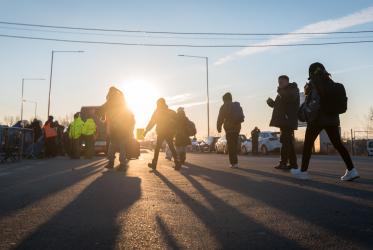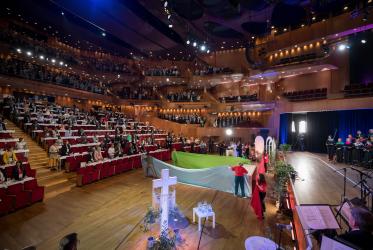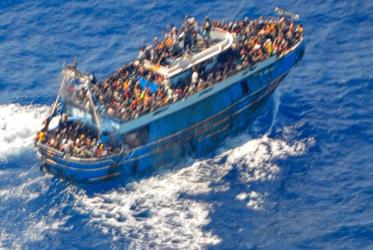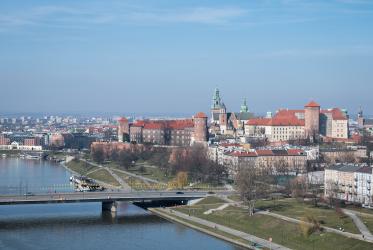Participants contrasted some people’s willingness to accept refugees from Ukraine with the unwillingness to accept those from other wars and crisis areas such as Syria, Iraq, Afghanistan, Eritrea, and Belarus.
In fact, pushing back refugees in many cases undermines the core of human rights and violates international refugee protection laws. Families with children and traumatized people are particularly vulnerable.
Dr Hanna Machińska, vice ombudsman and deputy commissioner for Human Rights in Poland, expressed grave concern about the situation at the Polish Belorussian border, where there are repeated allegations about refugees brutally being pushed back to Belarus. "This is a violation of God’s right and it is a violation of human rights,” she said.
Father Panteleimon Papasynefakis of the Church of Greece echoed this: "Europe has shown that it can respond. It is once again time to remember our basic principles of solidarity and, most of all, it is time to terminate the policy of discrimination.”
Torsten Moritz, general secretary of the Churches' Commission for Migrants in Europe, said: "The first six months of receiving Ukrainian refugees has shown how Europeans have opened hearts, mind and houses for refugees.”
What is needed now is to make these good practices sustainable, he urged. “This will require more and stable resources from governments and the EU, but also again private organisations to assist the refugees over the winter,” he said. “The situation could otherwise become very difficult. It will also be essential that the same welcome and protection is offered to all refugee groups, irrespective of nationality, religion, ethnic origin."
The conference—co-organized by Diakonie Germany, the World Council of Churches, and the Churches' Commission for Migrants in Europe—drew more than 70 experts on refugees from churches and non-governmental organizations from more than 15 countries.






